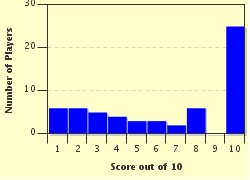Quiz Answer Key and Fun Facts
1. "Works of art make rules, but rules do not make works of art." (1862-1918)
2. "Neither a lofty degree of intelligence nor imagination nor both together go to the making of genius. Love, love, love, that is the soul of genius." (1756-1791)
3. "To send light into the darkness of men's hearts - such is the duty of the artist." (1810-1856)
4. "Don't bother looking at the view - I have already composed it." (1860-1911)
5. "Without craftsmanship, inspiration is a mere reed shaken in the wind." (1833-1897)
6. "My music is best understood by children and animals." (1882-1971)
7. "Sometimes I can only groan, and suffer, and pour out my despair at the piano!" (1810-1849)
8. "Music should strike fire from the heart of man, and bring tears from the eyes of woman." (1770-1827)
9. "So long as the human spirit thrives on this planet, music in some living form will accompany and sustain it and give it expressive meaning." (1900-1990)
10. "The aim and final end of all music should be none other than the glory of God and the refreshment of the soul. If heed is not paid to this, it is not true music but a diabolical bawling and twanging." (1685-1750)
Source: Author
reedy
This quiz was reviewed by FunTrivia editor
bloomsby before going online.
Any errors found in FunTrivia content are routinely corrected through our feedback system.

